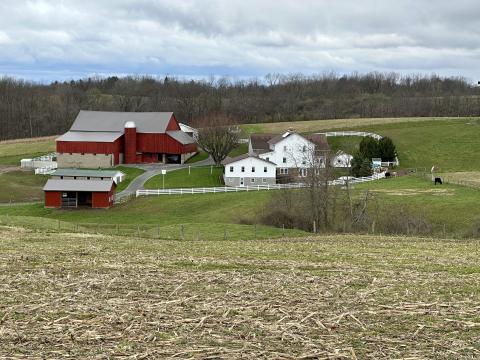New EU Rules on Farm Emissions Now in Effect
New EU Rules on Farm Emissions Now in Effect

On Sunday, July 4th, a revised set of rules from the European Union concerning industrial emissions took effect, significantly broadening the scope to include more livestock farms than previous regulations.
The updated directive, known as IED 2.0, targets "the most polluting pig and poultry farms," according to the European Commission. These farms contribute to roughly 30% of the EU's total ammonia emissions.
The new legislation has been met with resistance from farming groups and right-wing political parties, who argue against holding farms to the same regulatory standards as heavy industries, such as battery gigafactories and steelworks.
Under the new rules, pig farms with more than 350 livestock units (LSU)—approximately 1,100 adult pigs or 700 breeding sows—are now included. Organic pig farms and those where animals primarily graze outdoors are exempt from these regulations. The previous legislation only applied to farms with over 2,000 pigs or 750 sows.
For poultry, the threshold remains at 280 LSU or 40,000 chickens raised for meat. However, egg farms are now subject to stricter rules, starting with farms that have 21,400 laying hens.
Initially, the European Commission proposed that cattle farms be included in the new rules, but the European Parliament successfully negotiated their exclusion in discussions with EU member states. Nevertheless, the Commission will continue to address pollution from cattle farms, which are responsible for 50% of the EU's methane emissions and 25% of its ammonia emissions, with a report due by the end of 2026.
"Lighter Permitting" Concerns
Despite the expansion in the number of farms affected, some environmental groups are concerned that IED 2.0 could actually weaken regulations. The updated directive allows EU countries to implement a "lighter regulatory regime" for farmers, which could mean simpler registration processes instead of more comprehensive full permits.
The new legislation also grants individuals the right to seek compensation for health damages caused by "illegal pollution" and imposes stricter financial penalties for serious violations. Companies could face fines of at least 3% of their annual EU turnover, and non-compliant farms could have their operations suspended. However, measures to ensure animal welfare must continue.
The European Commission has two years to develop specific operational guidelines, which will be created in consultation with farming representatives, member state experts, and NGOs. The new rules will begin to apply to the largest affected farms starting in 2030, with full implementation by 2032.
Article source: https://www.euractiv.com/section/agriculture-food/news/new-eu-legislation-on-farm-emissions-takes-effect/
Photo attribution: Valereee, Amish farm, Holmes County Ohio, CC0 1.0

Το comment on the article or to read all articles, please sign in or sign up